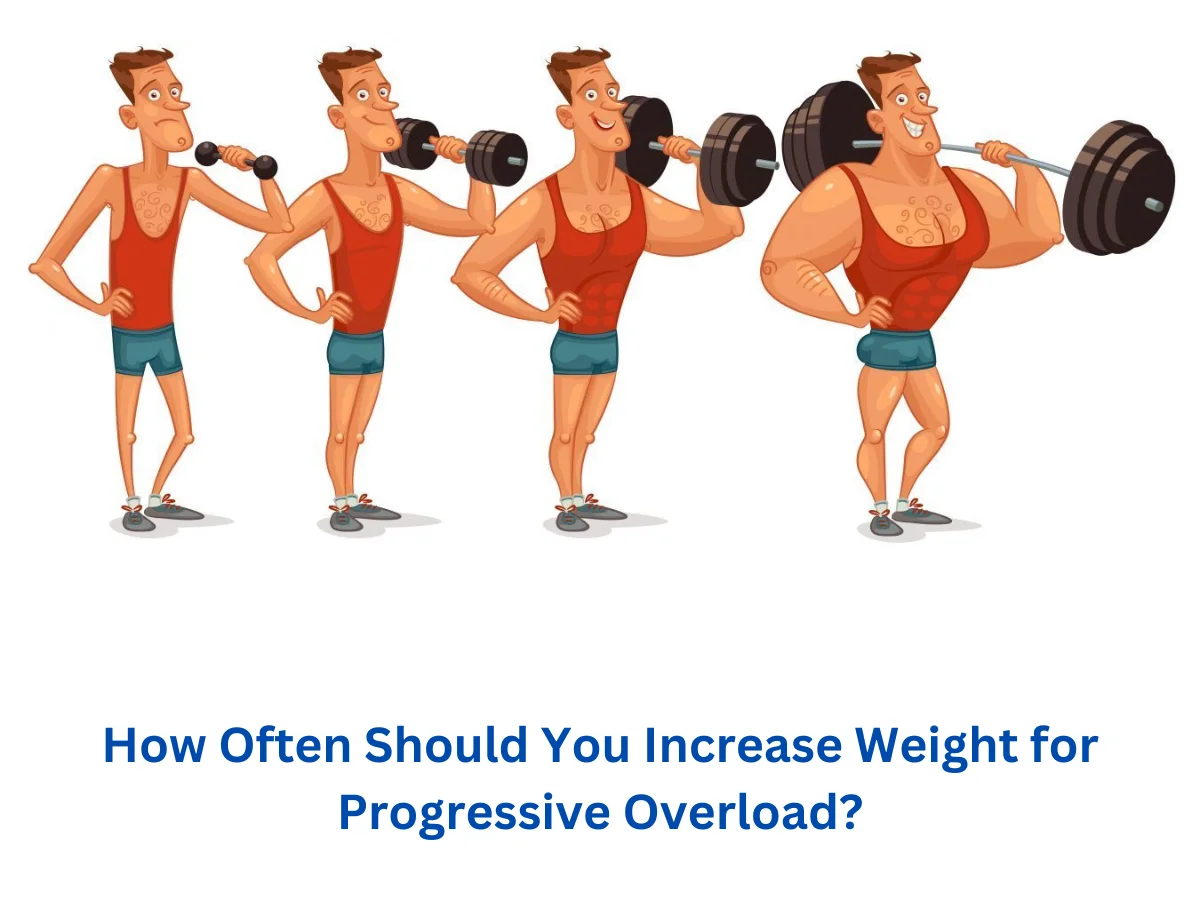Progressive overload is a fundamental principle in strength training and muscle building. It involves gradually increasing the resistance or weight you lift to continuously challenge your muscles and stimulate growth. However, the question that often arises is, “How often should you increase weight for progressive overload?” In this article, we’ll delve into the concept of progressive overload, explore the factors that influence weight increment frequency, and provide practical guidance to help you optimize your training routine.
1. Introduction
Progressive overload is a core principle in strength and resistance training, driving muscle growth, increased strength, and improved performance. However, understanding when and how to increase weight is crucial for achieving the desired results.
2. Understanding Progressive Overload
2.1. The Principle of Progressive Overload
Progressive overload entails gradually increasing the demands placed on your muscles to force them to adapt and grow stronger. This is typically achieved by increasing the weight or resistance you lift during exercises.
2.2. The Importance of Progressive Overload
Without progressive overload, your muscles have no reason to get stronger or grow. Sticking to the same weights and routines for an extended period can lead to plateaus in your progress.
3. Factors Influencing Weight Increment Frequency
3.1. Training Experience
Beginners can often increase weight more frequently as their bodies are not accustomed to resistance training. Intermediate and advanced lifters require more time between weight increments.
3.2. Training Goals
Your training goals play a significant role. Those aiming for hypertrophy (muscle growth) might increase weight less frequently than those focused on strength gains.
3.3. Recovery Ability
Individual recovery abilities vary. Some people recover faster and can increase weight more often, while others require longer recovery periods.
4. How Often Should You Increase Weight?
4.1. Beginner Lifters
Beginners can often increase weight every 1-2 weeks, focusing on form and consistency before adding substantial weight.
4.2. Intermediate Lifters
Intermediate lifters might aim for weight increases every 3-4 weeks, allowing time for adaptation.
4.3. Advanced Lifters
Advanced lifters may only increase weight every 6-8 weeks, focusing on advanced training techniques and periodization.
5. Strategies for Effective Progressive Overload
5.1. Track Your Progress
Maintain a training log to track your lifts, repetitions, and sets. This helps identify when it’s time to increase weight.
5.2. Maintain Proper Form
Always prioritize proper form and technique over weight increment. Poor form can lead to injuries and hinder progress.
5.3. Incorporate Deload Weeks
Periodically incorporate deload weeks, during which you reduce weight and volume. This helps prevent overtraining and promotes recovery.
6. Conclusion
Progressive overload is a cornerstone of effective strength training and muscle building. How often you should increase weight depends on your training experience, goals, and recovery ability. By understanding these factors and implementing effective strategies, you can optimize your training routine and achieve your fitness objectives.
7. FAQs
7.1. Can I use bodyweight exercises for progressive overload?
Yes, bodyweight exercises can be effective for progressive overload. You can increase the difficulty by adding reps, changing the exercise variation, or using equipment like resistance bands.
7.2. Should I increase my weight every workout?
Increasing weight every workout is not necessary or sustainable, especially for intermediate and advanced lifters. Gradual increments at appropriate intervals are more effective.
7.3. What if I can’t increase weight due to limited equipment?
If you lack additional weights, focus on increasing reps, time under tension, or trying advanced variations of exercises to continue challenging your muscles.
7.4. Is progressive overload necessary for endurance training?
Progressive overload is more commonly associated with strength and muscle training. Endurance training focuses on improving stamina and may not require weight increases in the same way.
7.5. How do I prevent overtraining while increasing weight?
Incorporate deload weeks into your training routine, prioritize recovery, and listen to your body. If you experience excessive fatigue or declining performance, it may be a sign of overtraining, and you should reduce intensity temporarily.
Read More: https://www.rozyjos.com/
More Related:
SAO Progressive vs Original: Exploring the Evolution of Sword Art Online
Why Are Progressive Lenses So Expensive: Unveiling the Costs Behind Clarity
How Many Hard Brakes Does Progressive Allow: Navigating Safe Driving
Single Vision or Progressive for Driving: Which is Right for You?
Why Did Progressives Seek to Eliminate Government Corruption?

